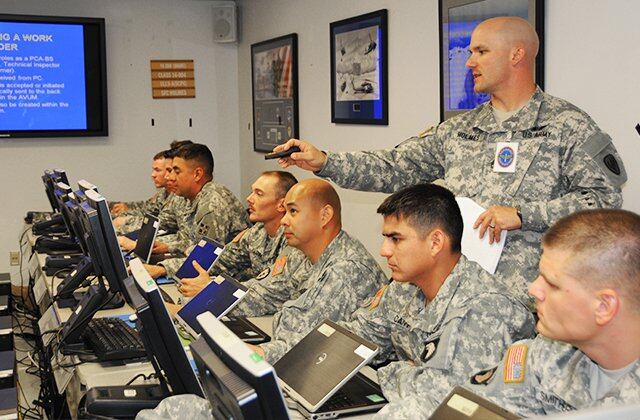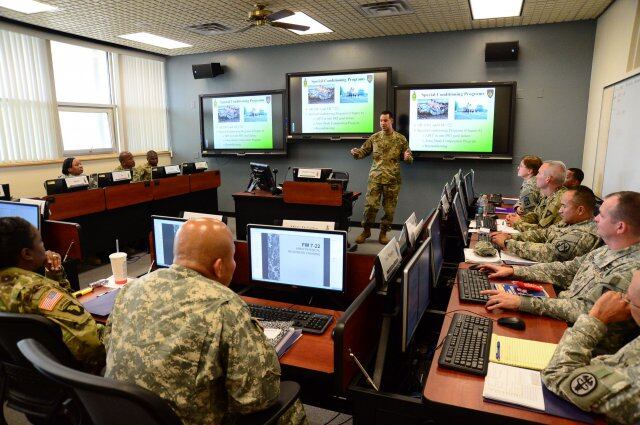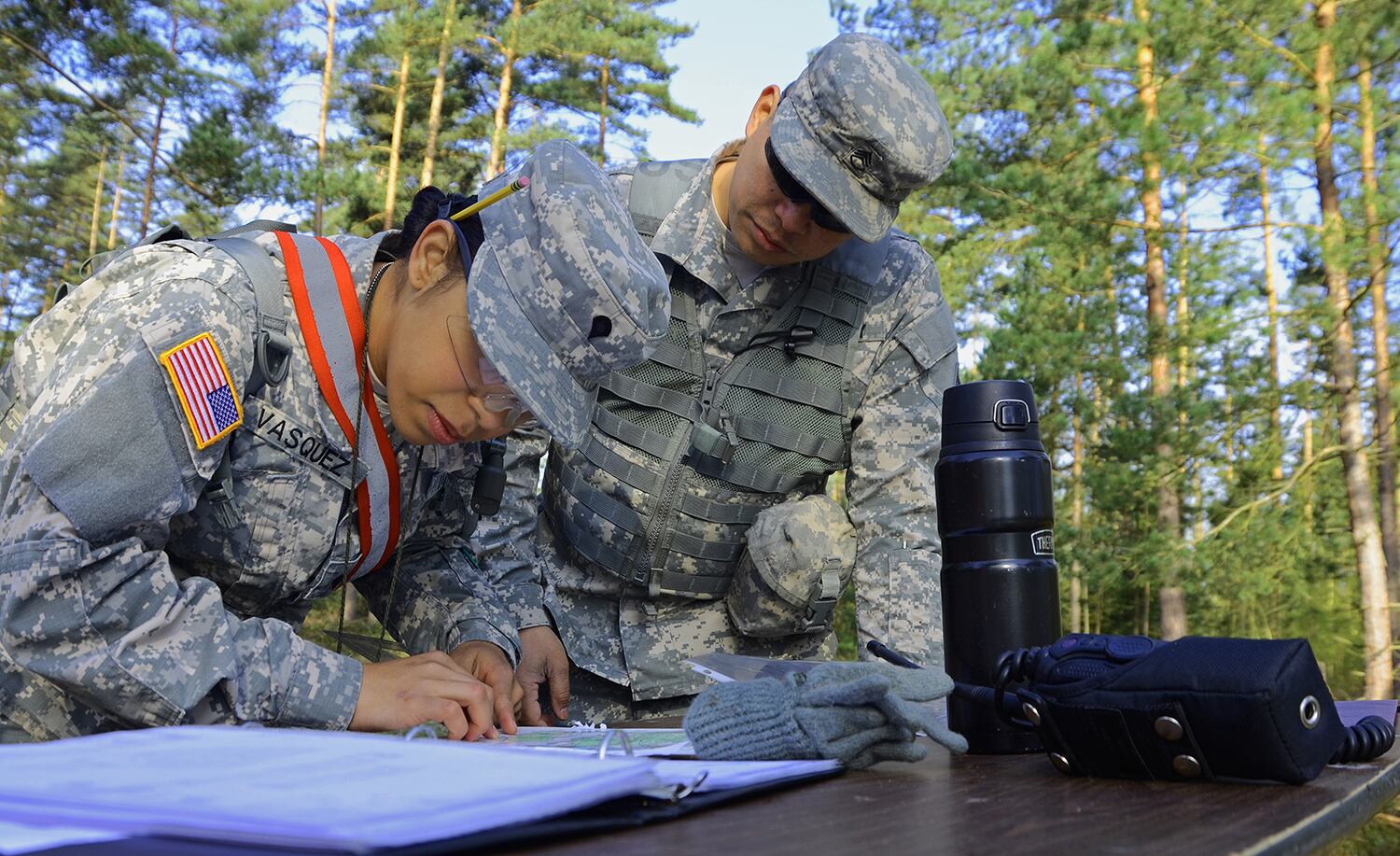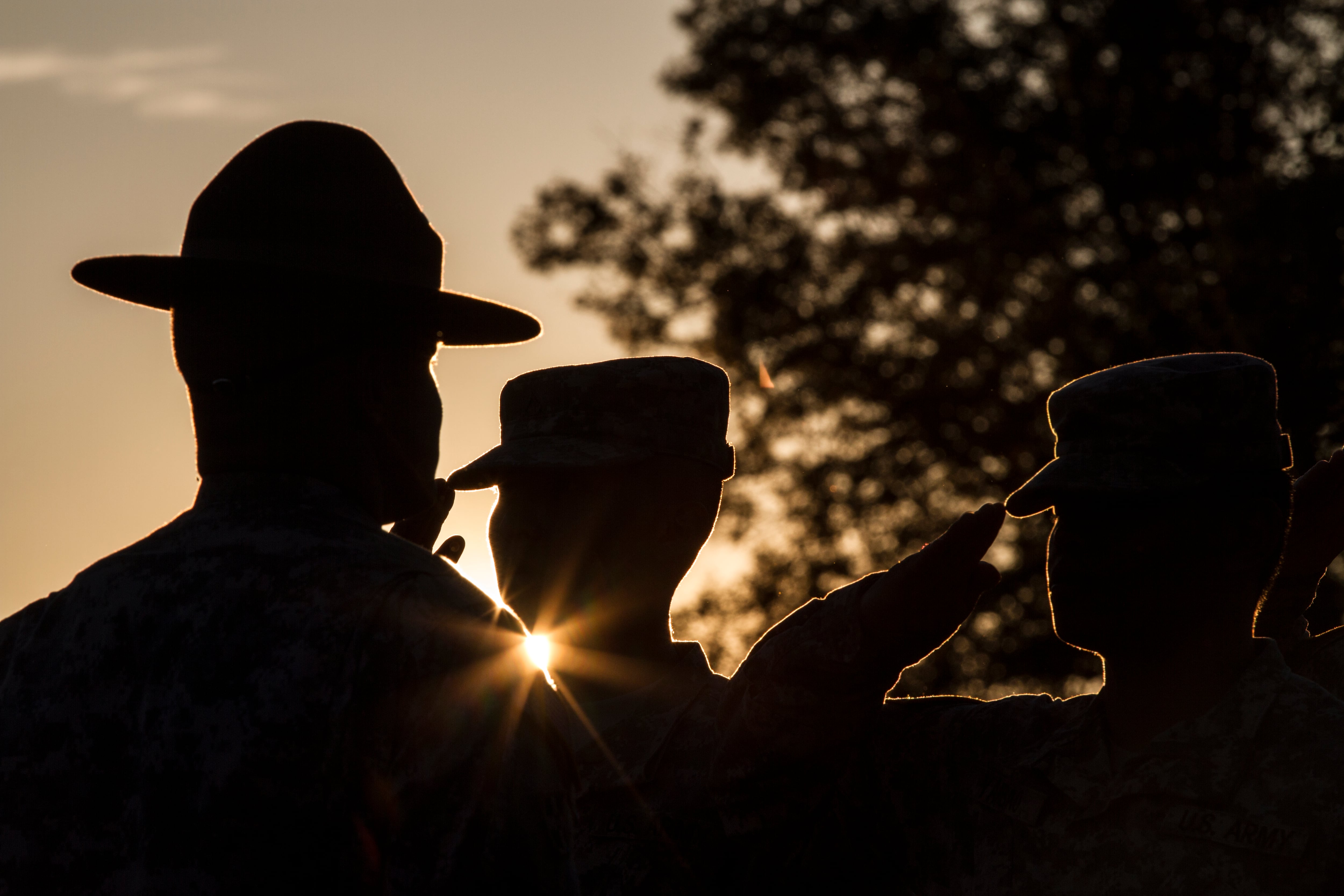As the Army moves toward full implementation of a new NCO promotion system, it has issued guidance to units for scheduling soldiers to attend the schools they need.
Under the STEP, or select-train-educate-promote, professional development process launched early this year, soldiers must complete a regimen of online and resident military education courses to be considered for, and then promoted to, the ranks of sergeant through sergeant major.
STEP went into effect Jan. 1 for advancements to sergeant and staff sergeant; it will apply to staff sergeants considered by the sergeant first class board that convenes June 1.
Implementation of STEP will be phased in for the other ranks. This includes the new Master Leader Course, which will become a requirement for promotion pin-on to master sergeant in fiscal 2018.
The new requirements apply to the active and reserve components, with few deferment waivers being granted for the requirements that link promotions to graduation from resident NCO education courses.
Over the past several months, Training and Doctrine Command and Human Resources Command have been working through a training backlog that began with some 14,000 soldiers; that backlog today stands at roughly 10,000 soldiers.
The backlog is most pronounced among soldiers waiting to attend the Advanced Leader Course and Senior Leader Course, which have resident phases and vary in content from one specialty to another.
Most of these courses are taught at branch service schools, with attendance being scheduled by the enlisted personnel directorate of HRC in coordination with the training community.
The Basic Leader Course, a requirement for promotion pin-on to sergeant, has a curriculum that is common to all MOSs, and that is taught at NCO academies throughout the Army. Scheduling for course attendance is managed locally.
Selections for the 10-month Sergeant Major Course are made annually by a centralized board.
Under standardized procedures announced Tuesday March 29 by Human Resources Command, soldiers will be scheduled for NCO education system course as follows:
Basic Leader Course
Attendance will continue to be scheduled at the installation level. Army command and service commands will establish quota management plans that will ensure that soldiers with the most promotion points on an order of merit list will attend the course before soldiers who rank lower on the OML.

The Army's new STEP system requires soldiers to complete professional military education courses before they can be promoted. Here, Sgt. 1st Class Michael Holmes, an NCO Academy Senior Leaders Course instructor, leads a class discussion.
Photo Credit: Sara E. Martin/Army
Advanced Leader Course
HRC will schedule attendance 90 to 120 days before the course start date, with priority going to soldiers with the highest point totals in their MOS. Soldiers will be scheduled even if their unit is pending deployment.
If a commander determines that a soldier cannot attend training, the unit must submit a deferment request to HRC. The command will strive to schedule training for soldiers who have been identified for deployment, a short tour assignment or unit rotation before that event.
Soldiers who are serving an overseas assignment are required to have at least six months remaining to serve in that command after completion of the NCO course.
Senior Leader Course
Soldiers who are selected by an annual sergeant first class promotion board will be scheduled for course attendance based on their MOS sequence number. The scheduling philosophy for soldiers pending deployment, a short tour assignment or who are based overseas will be the same as for the ALC.
The fiscal 2016 sergeant first class board will convene June 1. Beginning with the release of that list this summer, soldiers who are not graduates of the SLC will have 18 months to complete the course or be removed from the selection list on the first day of the 19th month.
Promotable staff sergeants who cannot attend SLC through no fault of their own must request a deferment through the first general officer in their chain of command. Deferment requests must be received at HRC no later than the 17th month after release of the promotion selection list.
Deferment policies
All deferment requests must be signed by the first general officer, or equivalent, in a soldier's chain of command. Requests must provide an alternative date for training.
Operational deferments are authorized for unit deployments, unit rotations or major training exercises in support of a unit deployment or rotation. Deferment requests must be made by a general officer.
Deferment requests for compassionate or medical reasons also must be signed by a general officer.

Sgt. Maj. Brian O'Leary, an instructor for the Master Leader Course, facilitates a class. O'Leary was one of six people chosen to teach the initial Master Leader Course pilot class. The new course will soon be required for promotion to master sergeant as part of the Army's new STEP system.
Photo Credit: David Crozier/Army
Legacy backlog
Soldiers on the legacy backlog for schooling will be provided one opportunity to attend their requisite NCO education course but are not eligible for further promotion consideration unless they meet all the requisite training requirements for their MOS and rank.
Soldiers in the ranks of staff sergeant and above are subject to possible involuntary separation under the Qualitative Management Program if they do not complete their required course within a specific time period.
Under Army policy, staff sergeants will be given a QMP screening if they do not complete the Advanced Leader Course within 48 months after their promotion to E-6.
Sergeants first class face possible separation if they do not have credit for the Senior Leader Course when they hit 48 months time-in-grade.





